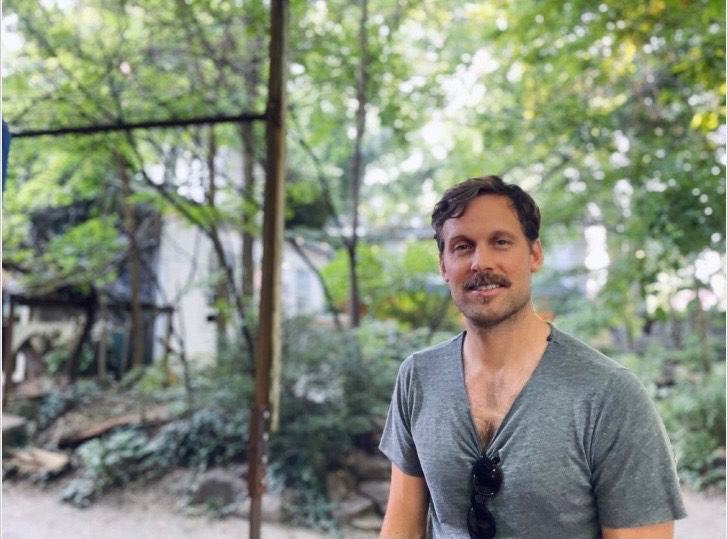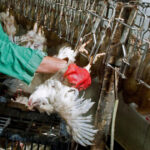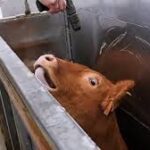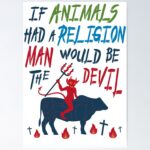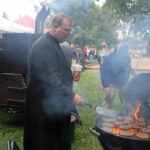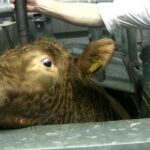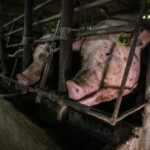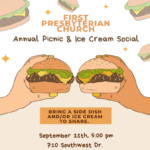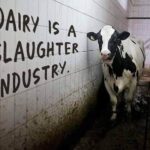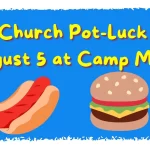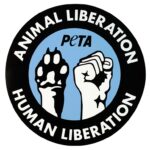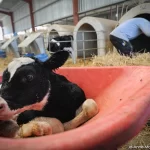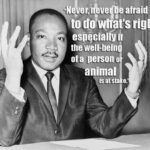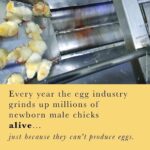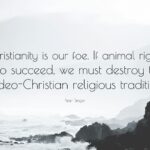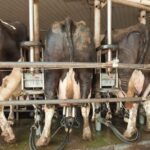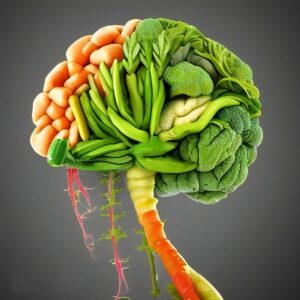Introduction: Anti-war activist and radical priest Daniel Berrigan once said of political journalist and fellow catholic Dorothy Day that she impressed him because “she lived as though the Truth were actually true.” I love that quote, and I feel as though it speaks volumes with regards to the many impassioned people I have met over the years. I can’t tell you how many times I have marveled at how someone can seem so righteous, smart, and laser focused for some causes, and yet so willfully blind and dull when it comes to other equally important movements. It is during these moments that I keep circling back to the commonsensical words of Reverend Dr. Martin Luther King, Jr., “Injustice anywhere, is a threat to justice everywhere.” Dr. King’s observation helps me to keep things simple, and remain on the right side of history (for the most part, and despite the loss of friends, and invitations to parties). Incidentally, Reverend King’s wife Coretta adopted a vegan lifestyle after her son Dexter convinced her that it was the next logical step to living a life of nonviolence. Mrs. King believed that her husband would have converted to a vegan lifestyle too for the same reasons. 🙂
To learn more about the subject of religion and animal rights, I am proud to be able to share a powerful letter in today’s Guest Writer Spot, that was written by a thoughtful man who is wise beyond his years, Dylan C. Duckworth. Dylan is a father, husband, writer, and co-founder of a plant based non-profit called The Stone Soup Collective in Charleston, South Carolina. Dylan is dedicated to plant based/vegan advocacy and modeling this message through his compassionate lifestyle, recipe creations, and writing.
A Letter for his Holiness, by Dylan C. Duckworth
His Holiness,
I hope this letter finds you well. I am not sure where to begin. I only know that I must do so. I will do my best to keep this correspondence as brief and to-the-point as possible, as I know that your time is valuable.
I want to first tell you that my wife is a fine Catholic woman and while I attend church with my wife on occasion I, myself am not Catholic. I can tell you that I do admire and value greatly the work that your church and countless other churches do in building communities and helping to instill virtue and purpose into the lives of those who count themselves among you. You might now be wondering why I am not a part of a church. And now is when I must humbly ask that you allow me to illuminate you on this matter.
As a child I remember not ever being able to truly grasp the teachings of my grandmother’s Methodist church. As I grew older I took it upon myself to explore other churches; all kinds of churches. None of them stuck, and I continued onward, living and growing, always searching for deeper meaning and truth in the world. Then one day, seemingly out of nowhere, something clicked. Something profound. Of course, my profound realization did not come from nowhere. But I can’t point to one specific thing that led me to it. And if you knew where I came from, how I grew up, or otherwise looked at my life from an outside perspective, I’d bet the chances of me, of all people, finding this profound realization, would be considered slim to none in your mind.
I am, by nature, an autodidact. I am infinitely curious, and with a world of books and video archives, and the ability to get the answer to most any question answered at the length and ease of a few keystrokes, I stay busy and rarely experience boredom. So maybe that is why “it” happened for me.
After watching one documentary called “Earthlings,” I stopped eating animals and buying products made from them. It was that simple. I just had to see it to know that I did not want to take part in something so profoundly horrific. But, then again, it was not so simple, because had I not previously researched health and nutrition, and found that not only do humans not need “meat” or “dairy” to survive, but that they (we) appeared to live longer and healthier lives without them, I would quite possibly not have known that it was even possible to not eat cows and chickens and pigs, and so on. I suppose I could have easily gone on feeling bad that such things were necessary.
It has been 4 years now, and I find myself blessed with a beautiful and loving wife, good health, and a peaceful house on Sullivan’s Island to call home. Life has never been better. I have also never made so little money. You see, I was in the restaurant business, and The South is not known for vegan cuisine… Funny how stuff works out! I am not, however, without troubles. And what troubles me now is how much I see that is connected to our practices of confining and slaughtering animals. For an exceptionally poignant explanation of this, I urge you to read (or listen to) “The Jungle” by Upton Sinclair. It’s a story oflife in the late 1800’s, in the stockyards of Chicago. It is truly astounding how many industries are tied to the animal-killing business. This account is just as true today as it was then, as we clearly have not changed our habits other than to add more to the herd and speed up the process further.
As I began to grasp this stuff, I realized that a large portion of the world’s “economy” has its roots in either animal slaughter or oil. But, honestly, I imagine that had oil not been discovered, we would just be burning fat from that many more animals to have the energy required for killing yet more animals! Knowing this, it became easier for me to understand why not much is ever said of such a ubiquitous, yet lowly, industry. And it is lowly. I must tell you, from the bottom of my heart, from the depths of my soul, the work that is done in this industry is the true work of the devil, and there are so many signs pointing to this all along the way.
The very word “capital” is derived from the Latin word “capita,” meaning “head,” as in the head of a cow or calf or pig, etc. The keeping and selling of these beings is how fortunes were initially amassed. Those who were in the business, needed more and more land for grazing—the reason for which the earliest wars occurred. For a more holistic explanation with regards to this phenomenon, and how it relates to the world around us today, I urge you to read (or listen to) “The World Peace Diet” by Dr. Will Tuttle. For a long time, I carried it with me everywhere I went. His book continues to be my number one go-to for living and promoting a healthy, ethical and enlightening plant-based lifestyle due to the solidness of the ideological foundation created by Dr. Tuttle’s research.
His Holiness, it troubles me that no one seems ever to be able to pinpoint the causes of so many of our greatest problems in the world. I feel as though we are perpetually unable to see what is right in front of our eyes. There is but one root cause at the beginning of all suffering; we keep failing to acknowledge that the word “others” includes all living beings. This is how we continuously condone the killing and enslaving of beings who, for any myriad of reasons, are considered lower than another, thus perpetuating an endless cycle of death and brutality. To realize that right here in Charleston, only one hundred fifty years ago or so, it was perfectly acceptable to look upon a human with dark-colored skin as mere property, must surely be cataclysmic in realizing the truth in these words.
What is much more troublesome, is that, to my understanding, the Bible is clear on this as well. Jesus did not condone the killing or sacrificing of animals, or the moneychangers that profited from the practice. To my understanding, he endeavored to “cleanse the temple” of them. I believe it may have been this fundamental grievance with those who were surely in power, just as those who are in power today, that got him murdered. I also read passages like Genesis 1:29, and it serves to reinforce this notion of what is expected of those who seek to be righteous and know God.
There’s no question that throughout history there have been those who refrained from consuming and using animals and spoke to the importance:
Pythagoras (570-490 BC): “For as long as man continues to be the ruthless destroyer of lower living beings, he will never know health or peace. For as long as men massacre animals, they will kill each other. Indeed, he who sows the seeds of murder and pain cannot reap joy and love.”
Socrates (with Glaucon), as written in Plato’s The Republic (469-399 BC)
Socrates: Would this habit of eating animals not require that we slaughter animals that we knew as individuals, and in whose eyes we could gaze and see ourselves reflected, only a few hours before our meal?
Glaucon: This habit would require that of us.
Socrates: Wouldn’t this [knowledge] hinder us in achieving happiness?
Glaucon: It could so hinder us in our quest for happiness.
Socrates: And, if we pursue this way of living, will we not have need to visit the doctor more often?
Glaucon: We would have such need.
Socrates: If we pursue our habit of eating animals, and if our neighbor follows a similar path, will we not have need to go to war against our neighbor to secure greater pasturage, because ours will not be enough to sustain us, and our neighbor will have a similar need to wage war on us for the same reason?
Glaucon: We would be so compelled.
Socrates: Would not these facts prevent us from achieving happiness, and therefore the conditions necessary to the building of a just society, if we pursue a desire to eat animals?
Glaucon: Yes, they would so prevent us.
Hippocrates (460-370 BC): “The soul is the same in all living creatures, although the body of each is different.”
Plato (428-347 BC): “The Gods created certain kinds of beings to replenish our bodies; they are the trees and the plants and the seeds.”
Voltaire (1694-1778): “How pitiful, and what poverty of mind, to have said that the animals are machines deprived of understanding and feeling… Judge (in the same way as you would judge your own) the behaviour of a dog who has lost his master, who has searched for him in the road barking miserably, who has come back to the house restless and anxious, who has run upstairs and down, from room to room, and who has found the beloved master at last in his study, and then shown his joy by barks, bounds and caresses. There are some barbarians who will take this dog, that so greatly excels man in capacity for friendship, who will nail him to a table, and dissect him alive, in order to show you his veins and nerves. And what you then discover in him are all the same organs of sensation that you have in yourself. Answer me, mechanist, has Nature arranged all the springs of feeling in this animal to the end that he might not feel? Has he nerves that he may be incapable of suffering?”
Benjamin Franklin (1706-1790): “My refusing to eat meat occasioned inconveniency, and I have been frequently chided for my singularity. But my light repast allows for greater progress, for greater clearness of head and quicker comprehension.”
Henry David Thoreau (1817-1862): “One farmer says to me, ‘You cannot live on vegetable food solely, for it furnishes nothing to make the bones with;’ and so he religiously devotes a part of his day to supplying himself with the raw material of bones; walking all the while he talks behind his oxen, which, with vegetable-made bones, jerk him and his lumbering plow along in spite of every obstacle.”
Leo Tolstoy (1828-1910): “A man can live and be healthy without killing animals for food; therefore, if he eats meat, he participates in taking animal life merely for the sake of his appetite. And to act so is immoral.”
Mark Twain (1835-1910): “Of all the creatures, man is the most detestable. Of the entire brood, he’s the one that possesses malice. He is the only creature that inflicts pain for sport, knowing it to be pain. The fact that man knows right from wrong proves his intellectual superiority to the other creatures; but the fact that he can do wrong proves his moral inferiority to any creature that cannot.”
Thomas Edison (1847-1931): “Non-violence leads to the highest ethics, which is the goal of all evolution. Until we stop harming all other living beings, we are still savages.”
George Bernard Shaw (1856-1950): “Think of the fierce energy concentrated in an acorn! You bury it in the ground, and it explodes into an oak! Bury a sheep, and nothing happens but decay.”
Sir Arthur Conan Doyle (1859-1930): “At the moment our human world is based on the suffering and destruction of millions of non-humans. To perceive this and to do something to change it in personal and public ways is to undergo a change of perception akin to a religious conversion. Nothing can ever be seen in quite the same way again because once you have admitted the terror and pain of other species you will, unless you resist conversion, be always aware of the endless permutations of suffering that support our society.”
Mahatma Gandhi (1869-1955): “It ill becomes us to invoke in our daily prayers the blessings of God, the Compassionate, if we in turn will not practice elementary compassion towards our fellow creatures.”
Albert Schweitzer (1875-1965): “Until he extends the circle of his compassion to all living things, man will not himself find peace.”
Albert Einstein (1879-1955): “It is my view that the vegetarian manner of living, by its purely physical effect on the human temperament, would most beneficially influence the lot of mankind.”
H.G. Wells (1886-1946): “In all the round world of Utopia there is no meat. There used to be, but now we cannot stand the thought of slaughterhouses. And it is impossible to find anyone who will hew a dead ox or pig. I can still remember as a boy the rejoicings over the closing of the last slaughterhouse.”
Ruth Harrison (1920-2000): “In fact, if one person is unkind to an animal it is considered to be cruelty, but where a lot of people are unkind to animals, especially in the name of commerce, the cruelty is condoned and, once large sums of money are at stake, will be defended to the last by otherwise intelligent people.”
Carl Sagan (1934-1996): “Humans–who enslave, castrate, experiment on, and fillet other animals–have had an understandable penchant for pretending animals do not feel pain. A sharp distinction between humans and ‘animals’ is essential if we are to bend them to our will, make them work for us, wear them, eat them–without any disquieting tinges of guilt or regret. It is unseemly of us, who often behave so unfeelingly toward other animals, to contend that only humans can suffer. The behavior of other animals renders such pretensions specious. They are just too much like us.”
T. Colin Campbell, PhD (1934-present): “What we have come to consider as ‘normal’ illnesses of aging are really not normal. In fact, these findings indicate that the vast majority, perhaps 80 to 90% of all cancers, cardiovascular diseases, and other forms of degenerative illness can be prevented, at least until very old age, simply by adopting a plant-based diet.”
The Dalai Lama (1935-present): ”I do not see any reason why animals should be slaughtered to serve as human diet when there are so many substitutes. After all, man can live without meat. It is only some carnivorous animals that have to subsist on flesh. Killing animals for sport, for pleasure, for adventures, and for hides and furs is a phenomenon which is at once disgusting and distressing. There is no justification in indulging in such acts of brutality . . . Life is as dear to a mute creature as it is to a man. Just as one wants happiness and fears pain, just as one wants to live and not to die, so do other creatures.”
Paul McCartney (1942-present): “If slaughterhouses had glass walls, everyone would be a vegetarian.”
Neal D. Barnard, MD (1953-present): “The beef industry has contributed to more American deaths than all the wars of this century, all-natural disasters, and all automobile accidents combined. If beef is your idea of “real food for real people,” you’d better live real close to a real good hospital.”
Buddha (563-483 BC): “To become vegetarian is to step into the stream which leads to nirvana.”
For as long as we neglect to define the terms of our righteousness in plain truth and continue to offer only metaphoric rhetoric to then be twisted and used to suit the needs of our most wretched whims and desires, we will continue to dwell in the mire of our lowest selves, rather than bask in the glory of such an otherwise divine existence.
At last, you have arrived at my point. The idea of love and respect for all life is behind all the major religions of the world. Their execution, however, always falls short. The reason why I say this is simple. If I am to be a part of a church, that church simply cannot condone killing.
For about 2 years after I began living as a vegan, I was still working in restaurants. My hardest shift became Sunday brunch. The sheer mass of folks—good, churchgoing folks, who would fill up the restaurant after the morning service, the message of which I could only imagine spoke to the importance of treating all life with love and respect, and doing no harm to others, and so on—who would then gorge themselves on bacon and eggs and steak, and pretty much any animal part or fluid that anyone could think of, was so hurtful and confusing to me, and still is.
His Holiness, thank you so much for taking the time to hear me on this. I wish you and all those in your care abounding peace, love, and health.
Sincerely,
Dylan C. Duckworth
“The greatest challenge of the day is: how to bring about a revolution of the heart, a revolution which has to start with each one of us.” – Dorothy Day
Thank you Dylan!
Click here to learn more about religion’s regressive hold on animal rights from Peter Singer.
Click here to learn more about Dorothy Day.
Click here to learn more about Father Daniel Berrigan.
Click here to learn more about Father Daniel Berrigan’s animal advocacy.
Click here to learn about the Doctrine of Discovery.
Click here to learn about the hypocrisy of the religious slaughter ban.
Click here to learn more about how Veganism can be compatible with Catholicism.
Click here to learn more about stewardship and purpose from a biblical perspective.
Click here for information on the excellent film, “A Prayer for Compassion.”
Click here to learn more about Dr. Martin Luther King, Jr..
Click here to learn more about Mark Twain.
Click here for a superb presentation from Dr. Milton Mills on why humans are not designed to eat animals.

